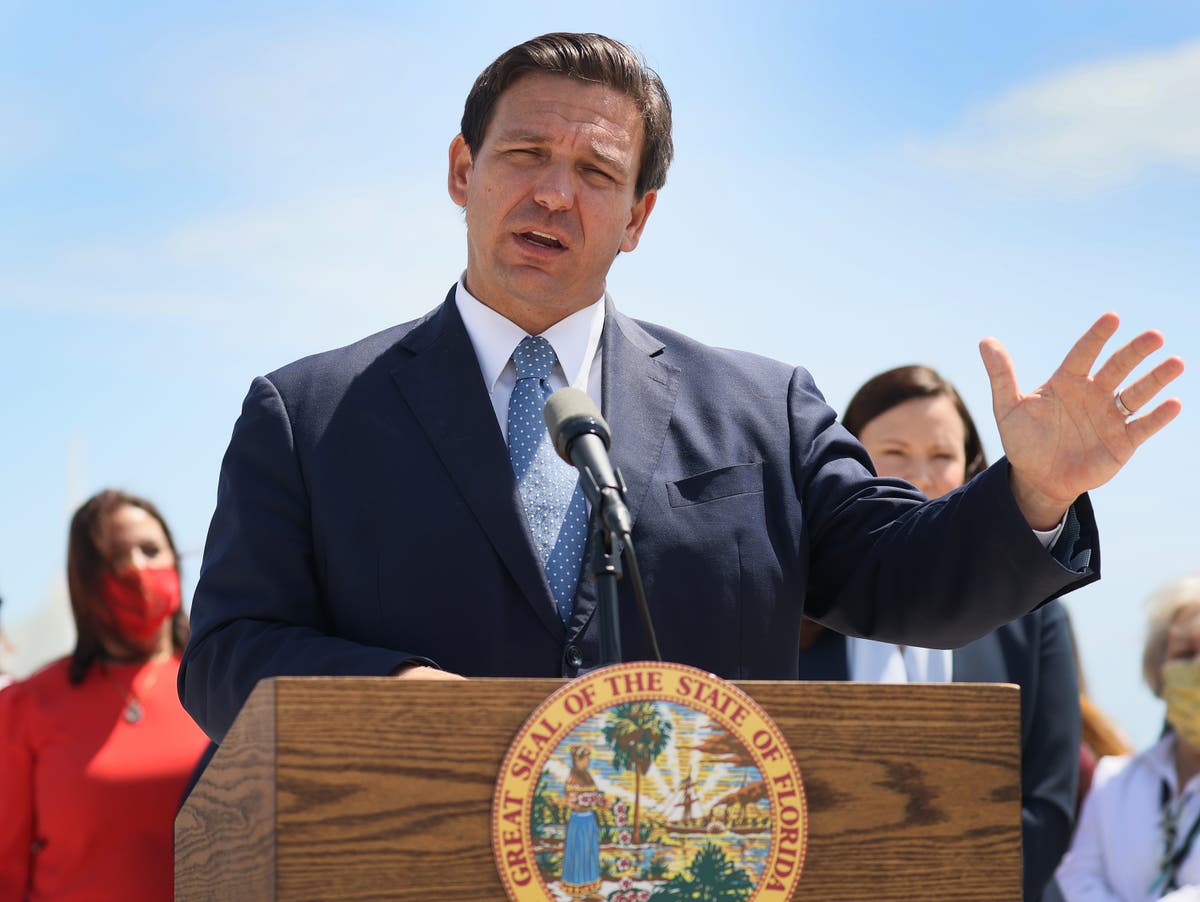[ad_1]
Republicans in Florida have approved legislation to punish social media companies for exercising their rights as private companies to ban and deplatform voices that violate their user guidelines.
Governor Ron DeSantis, a loyal ally to Donald Trump – who was banned by Twitter and several other social media platforms in the aftermath of the Capitol insurrection – has been a major proponent of the bill, and will undoubtedly sign it into law.
The bill passed in the Florida House 77-38, and in its Senate 23-17.
However, the bill will likely be challenged in court by tech industry trade groups who say the bill is a violation of the First Amendment.
Republican lawmakers – who often complain about alleged attacks on free speech and purport to be champions of the free market and enemies of expanding government intrusion into the affairs of private entities – have long complained that social media sites silence conservative voices and support expanding the government’s intrusion into the affairs of private companies by passing legislation to punish them.
The claims are exaggerated at best. YouTube has long been criticised for being a haven of far right-wing content and conspiracy theorists, with algorithms that formerly pushed users into increasingly extremist content. Hundreds of Republican lawmakers and conservatives organisations have active accounts on Twitter, and Facebook has been used as an organising and recruitment tool for many far-right groups and movements, including the anti-mask protests at the start of the pandemic and the “Stop the Steal” movement that preceded the Capitol insurrection.
Each of those social media companies has taken steps to try to curb extremist voices and calls for violence in the years following the 2016 election. Those efforts are at the heart of the complaints raised by Republicans.
Florida’s bill would ban social media from intentionally deplatforming political candidates, effectively prohibiting the companies from banning anyone who is running for an elected office. The plan would still allow the sites to issue 14-day bans and to remove individual posts that violate their terms of service.
“What this bill is about is sending a loud message to Silicon Valley that they are not the absolute arbiters of truth,” Republican state Rep. John Snyder told NBC News. “What this bill does is send a loud message that the Constitution does not have an asterisk that says only certain speech is free and protected.”
State Rep. Carlos Guillermo Smith, a Democrat, said if Republicans wanted to use the social media platforms for political purposes, then they should abide by the rules rather than trying to stop the companies from enforcing their guidelines.
“There’s already a solution to deplatforming candidates on social media: Stop trafficking in conspiracy theories. That’s the solution. Stop pushing misinformation if you’re a candidate or an incumbent elected official. Stop retweeting QAnon. Stop lying on social media,” Mr Smith said, according to NBC News.
He said Republican complaints about free speech were disingenuous, arguing that their real gripe was that Mr Trump was banned.
“Stop inciting insurrection against our republic. We’re hearing this bill because Twitter finally deplatformed former President Trump after five people were killed in an insurrection he incited at the U.S. Capitol,” he said.
A trade organisation representing internet companies, NetChoice, testified against the bill, arguing that private entities should have the freedom to decide how to best serve their users – a position that Republicans have long used to combat regulation efforts.
“The First Amendment makes clear that government may not regulate the speech of private individuals or businesses. This includes government action that compels speech by forcing a private social media platform to carry content that is against its policies or preferences,†the group’s president, Steve DelBianco, said during his testimony.
[ad_2]
Source link





